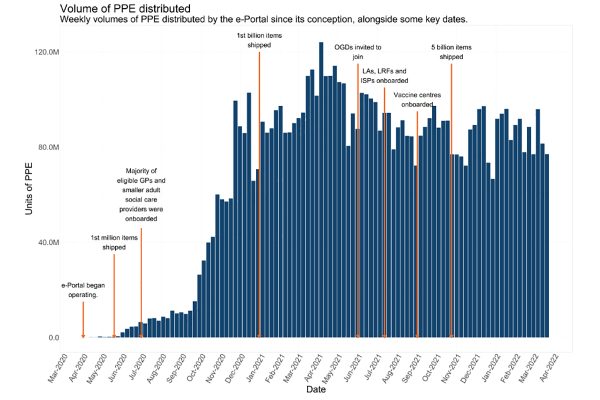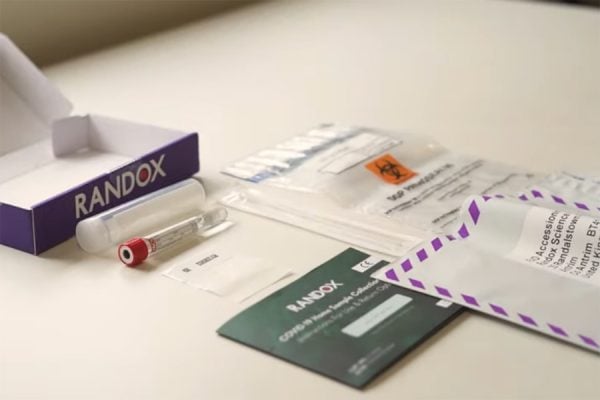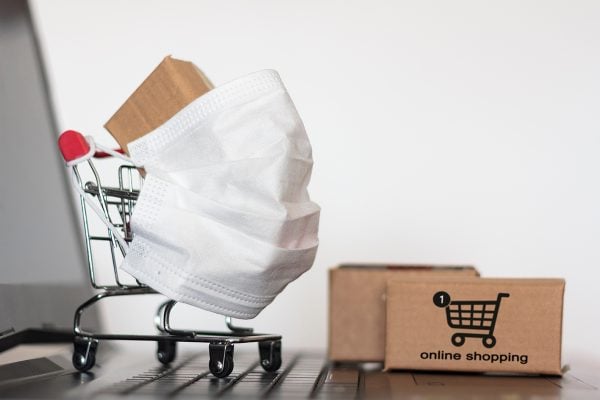 With the Government now telling business it’s time to go back to work (Unless they on the list of businesses ordered to stay closed), there has been a lot of talk of a ‘new normal’.
With the Government now telling business it’s time to go back to work (Unless they on the list of businesses ordered to stay closed), there has been a lot of talk of a ‘new normal’.
Helen Parker of The Wholesale Forums points out that there is no such thing as a new normal and everything you plan for should now take into account the abnormal:
Please stop telling companies to get ready for the “New Normal” – the best thing we can do is intelligently prepare for the abnormal
As humans we have an amazing capacity to believe our own bullsh*t, this is more professionally know by scientists as the ‘Hindsight Bias” – because we’ve seen a disaster movie as said at the time “I can see that happening you know” we now believe that we “knew it all along”. Along with the debunking of fortune tellers and “back from the future” claims (Did you not think 2020 was worth mentioning?!) the COVID-19 crisis has also collectively given us a massive reminder that everything can, and will change, sometimes very very fast on a global scale, in a way we can’t predict.
However, despite that recent lesson, what been striking in the past month is how many newspaper titles, webinars, virtual events or papers included in the title “the new normal” – I even found myself writing it as the title of one of our new eBook series and it felt good and fancy, until I realised I had no idea what would happen in the next 3 months or 1 year. But, in a time of unrest and fear of the future, the claim of certainty sells. Now these companies are certainly trying to help businesses, and more people will likely go to these webinars because of the title (I am more likely to click on this than “How ERP systems work”) but combined from every source it dangerously it implies that there is some kind of set in stone version of the future that if only we could predict accurately we could make a strategy, put all our eggs in that basket, we would beat everyone else. I know directors in retail and ecommerce businesses who have been put under huge pressure make very concrete strategies and decisions based on what they think will happen.
The problem is, there are too many factors for anyone to know even a handful of potential scenarios, let alone put their bet on one certain version of “New Normal”. Margaret Heffernan entrepreneur, CEO and author has just released an incredible book which a study of what businesses should do in a time of uncertainty (amazingly written and planned pre Coronavirus) and reminds people that even companies who create economic predictions as a service are only accurate 60% of the time.
So what should we do as a business? Whether big or small we should get very busy working on the things we KNOW will help our business, along with preparing for what we DON’T KNOW AND NEVER WILL:-
What we KNOW
Especially in the next few weeks, now it is acceptable to be able to go to your place of work if necessary and not risky, there are a deluge of actions that can be taken to improve your business. For example:-
- Make your workplace “COVID-19 Secure” – the full guidelines
will come out next weekare now out, available here, but it doesn’t take a genius to start to prepare. Even if it’s only yourself you may still have visitors and clients. Should you do a video tour of the product, or make a socially distanced area to inspect goods that are delivered. Which post office will you go to, what is the safest etc - Re-photograph your goods properly whilst you have time. Better photos make products sell
- Re-write your descriptions if you haven’t already done. Better descriptions make products sell.
- Admin and research – sort out that filing you’ve meant to do for years
- Online Shop: Move away from the clunky site you built in the early 2000s and make one using a provider like Shopify that is mobile and tablet, and one click purchase so you can advertise on social media channels.
- Staff – do the reviews and chats with staff setting targets like you promised to do mid 2017 and never got round to (they still moan about that FYI)
Get ready for what we DON’T KNOW, and never will until it happens
In 1970 Shell Oil had a planning department, and they prepared for different scenarios. At the time it was accepted wisdom that because Oil is a finite resource the prices would NEVER fall. But someone wanted to model the worst chase scenario for if they did. This was absurd but they let it be modelled and in turned out all the preparations for a worst case scenario were a good idea anyway, so they were implemented. Then in 1973 the world was shocked as prices did fall, and because of these measures, Shell went from the weakest to one of the strongest companies.
The advice from Margaret Heffernan From studying who succeeds and who doesn’t in uncertain times is to ask ‘WHAT IF?’ and you will become resilient. For example:-
- What if you sell 99% in the UK, there’s a second or third wave and non-essential products are restricted again? Research and register to sell overseas, look at currency exchange, look at
- What if borders close with Brexit? Research where stock could go and sell in Europe to one of the many many marketplaces there.
- What if you hold predominantly one product and you might get supplier problems? Consider diversifying and holding more product lines
- What if China – US rivalry escalates to military action as highlighted as a risk in the economist this week. Do you need to prepare to take payments via Chinese providers or prepare for stock coming from other sources in the event trade is impacted.
It is absolutely certain that there will be unexpected twists and turns over the coming months and so we don’t find ourselves running around in circles screaming the best way to prepare is not to fool ourselves that we can make predictions involving thousands of industries, hundreds of countries and billions of people but work on the foundation so we can stand solidly and move in any direction depending on the circumstance. There is no normal and accepting that could be the best piece of preparation you’ll ever do.











6 Responses
just a really really good article
one of the best I have read concerning the crisis
Thanks Jim! That’s really kind. There’s such a lot of noise and big unsubstantiated statements that are of no help to businesses, it was getting on my nerves!
“Especially in the next few weeks, now it is acceptable to be able to go to your place of work ”
Only in England.
Thank you Helen, very useful!
Refreshing to see a serious article with the word ‘bullsh*t’ – great opening sentence, after that you can’t not follow through with the cut to the chase.